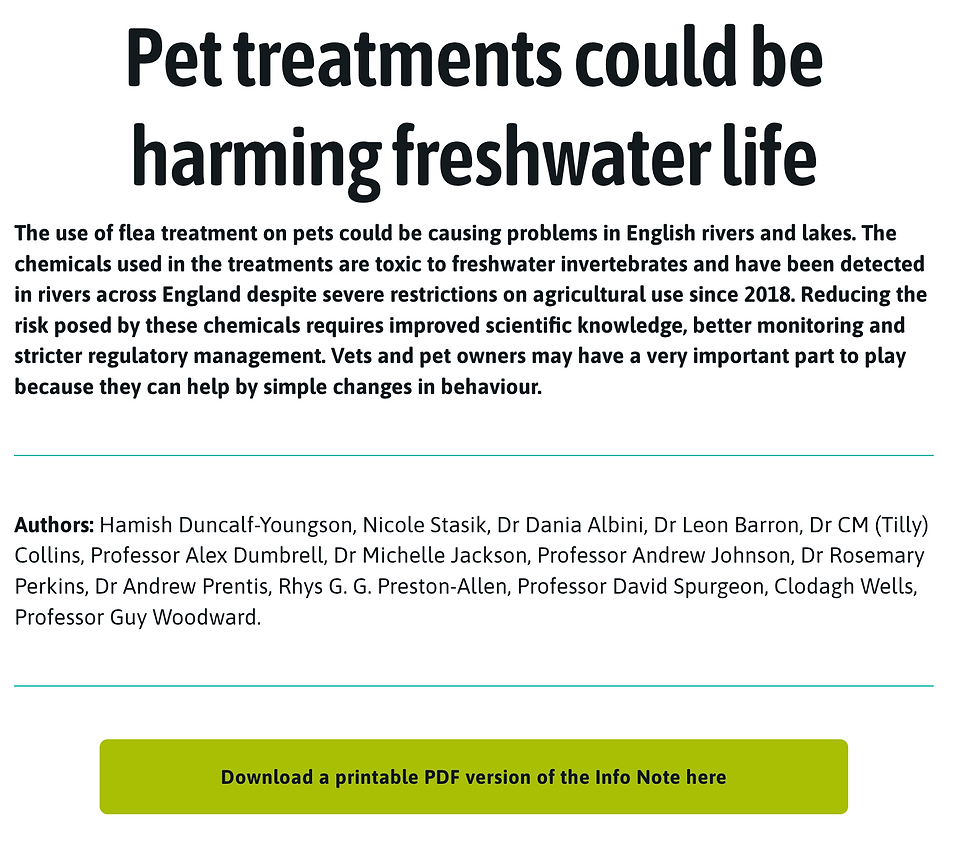Small but smart: the fascinating world of plankton
- Dania Albini
- Mar 11, 2021
- 3 min read

New article on the Oxford Scientist ( https://oxsci.org/small-but-smart-the-fascinating-world-of-plankton/ )
From the food we eat to the air we breathe, plankton help maintain and produce life on Earth.
What is plankton?
The word ‘plankton’ derives from the Greek “planktos” (πλαγχτος), which in turn comes from the Greek verb “plazo” (πλαζω) meaning to “drift” or “wander” and is used to describe tiny plants – called phytoplankton, and small animals – called zooplankton, that live in all aquatic ecosystems (from oceans to freshwater ponds and streams). However, marine plankton vary hugely in size, from few microns in diameter (phytoplankton) up to some exceptional large jellyfish weighing kilos! Plankton are crucial parts of aquatic ecosystems, but often they get forgotten or not given the recognition they deserve.
Why plankton is important?
From the food we eat to the air we breathe, plankton help maintain and produce life on Earth.
They play a fundamental role in the global carbon cycle. Phytoplankton use sunlight to perform photosynthesis: they transform the CO2 dissolved in the water into organic substances used for their growth and reproduction. Oxygen is one of the products they excrete from this activity… Exactly like terrestrial plants. Marine phytoplankton undertake 50% of the photosynthesis on earth, producing 50% of the oxygen we breath. Plankton contribute to the carbon cycle not only through photosynthesis but also by transferring biomass (and so energy) to higher trophic levels. In fact, phytoplankton are the preferred food for zooplankton, which are in turn eaten by fish, fish are eaten by bigger predators such as birds, seals… and us humans.
They are environmental bioindicators and they are very useful to study to see the effects of climate change on aquatic communities. This is because of their small size, short generation time and their ability to quickly respond to perturbations and environmental stressors (such as increase in water temperature and changes in pH).
Zooplankton have a recreational role for humans. I am sure many of us can remember the excitement of when, in young age, we were introduced to pond dipping: the exploration of the unseen microscopic creatures ready to be discovered by kids! Many of those organisms in our nets were zooplankton (as well as many other interesting animals such as tadpoles, dragonfly larvae and colourful beetles).
Plankton are crucial parts of aquatic ecosystems, but often they get forgotten or not given the recognition they deserve.
… And why smart?
Plankton, especially the freshwater groups, are generally quite small. However, small doesn’t mean simple or less intelligent. During my University career, I learnt that both zooplankton and phytoplankton can evolve many diverse and successful strategies to defend themselves against stressors. This ability is fundamental for their survival and thus is a main driving force in their life histories. Plankton are able to defend against predators and competitors (called biotic stressors) and also against physical abiotic environmental factors (such as prolonged light exposure, low nutrient availability and desiccation). Hairs, trichomes, spines and colonies are specialized morphological structures that can be formed by plankton to escape and survive predations. Dormant stages, such as resting eggs, are also fundamental for those zooplankton that live in unpredictable environments.
[ ... ]
Can you tell a curiosity about plankton that is not well known?
Everyone knows that at a particular time of the year (usually summer months), marine phytoplankton can produce an emission of light called “bioluminescence”, an extraordinary phenomenon that colours the sea and the waves in a shade of bright blue. But not many knows that this effect is used by chefs… to create luminous phytoplankton-based cocktails and dishes! A Spanish chef from a Michelin three-star restaurant in Cadì (Spain) spent 5 years researching a way to extract the plankton’s bioluminescence. Now he has a full tasting menu based on bioluminescent dishes to be, of course, eaten in the dark!

You can read the full article here: https://oxsci.org/small-but-smart-the-fascinating-world-of-plankton/


Comments